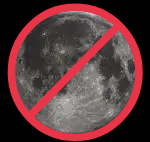- cross-posted to:
- [email protected]
- cross-posted to:
- [email protected]
I’ve always felt guilty by taking for granted the rare breed of virtuous humans that provide free excellent software without relying on advertising. Let’s change that and pay, how much would I “lose” anyway?
If they wanted your money, it would have been released as shareware.
Almost every open source project accepts donations. They want your money, they just don’t demand your money.
Sometimes I get scared that I‘d go broke if I donated to every project I use but if everyone who downloaded my software just left a dollar, I‘d have 8k after a year which would nearly sustain me alone.
So I think I might just donate a dollar to every project since it does make a difference.
Every year I allocate 100.- (around 100$) to share between every geeky project I want to support.
My list includes: Lemmy, Memmy, Joplin, Wikipedia, Organic Maps, Gnome, Thunderbird, Firefox, peertube)
I could give more, but I could give less.
I’m also trying to support the Linux Experiment with Patreon.
I do the same thing around xmas
I heard Organic Maps was ~pulling some shit.~
Edit: eh, idk if that’s accurate
Well, from reading the linked post it seems inaccurate.
Personally I’ve never used any link in Organic Maps or any advertising.
But thanks for making me aware of that controversy 😇
I advocate for that since years. We need to normalize to pay for OSS. The biggest issue I see is not that people are unwilling to pay (donate) for the software they use daily, but the the payment itself is to complicated. There is not “the one” app store for OSS that every OS uses that makes donations easy. Additionally taking care of taxes for donations is too much of a burden, so the app store needs to handle that as well. And voila: You have the Apple App store or Android Play store.
If taxes are a concern then I think opencollective.com is the recommended platform:
“Open Collective is a legal and financial toolbox for grassroots groups. It’s a fundraising + legal status + money management platform for your community. What do you want to do?”It’s quite sad to see reasonably popular apps with virtually no funding. I feel like highlighting the case of rssguard, probably one of the most popular apps in its category, with patreon, liberapay, and offering to prioritize bugs and suggestions from donors… barely 5€ per month.
Oh, I almost forgot, in these topics there should be a mandatory mention of core-js case.
The article does indirectly mention core-js within source “31. b. Explain xkcd: 2347: Dependency.”
But yeah, the status-quo is quite sad indeed.
deleted by creator
every little bit counts.
You bet it does: https://ncase.me/fireflies/
I should really create a list of websites too actually, but I think I’d be broke after donating to all of them.
I think thats quite unrelated as its about synchronisation not about “every bit counts”. Great website though
@mexicancartel @anguo I don’t consider it unrelated at all: “What small-scale interaction will you make today, little firefly?”
Hence “every little bit counts.”I see it more like the opposite. Even if you made some difference in timings it still syncs. Even if “firefly you” didn’t exist, it makes no difference…
Yep. Fascinating read, completely unrelated.
Donations to free software projects are pretty important. Since most of big ones are maintained by companies which has a partnership with foundations, lot of most free software projects (libraries, components, apps, etc) are maintained by small amount of volunteers, who paid everything for the project.
So, this not mean to make you rich, but at least having a coffee paid by some Lemmy user who uses your piece of software and wants to be grateful, makes you a bit more happy.
I like chiping in when I can. Now that I’m in college I can’t spare too much. :(
The thing is
- its a shame that enthusiasts dont donate. How?
- the biggest problem is normies using FOSS and never donating a cent
normies using foss and not donating is better than normies not using foss and not donating imo
It may remove the “weakest link in the chain” and does not support surveillance capitalist companies. It also makes the software more known.
In the end the biggest cost is development, which stays the same.
I also have the feelig total normies dont annoy in forums or with bug reports / feature requests, like many Linux users do in some time of their evolution XD
deleted by creator
What do you mean? In most OSS that i use (surely all KDE apps) there is a donate button in the menu bar that opens a webpage with a PayPal button… I don’t know how easier could it be.
I’m confused, as I progressed in the article I started seeing many proprietary applications being mentioned, with “free software” did you mean libre or gratis?
Ideally both. However, is “many” the correct word? How many proprietary applications did you count? And I’m not being ironic/sarcastic.
Not the majority, but that’s why I was confused as if they were put there by overlooking the license, anyway it makes sense now. I enjoyed the article btw!
Glad you enjoyed it, and your interaction is appreciated; I’m not immune to blunders so that’s why I asked.
Good article 👍
It’s great to donate if you can, but if you can’t, then appreciate the public good that these programmers have done and don’t feel guilty for using free software for free.
Indeed, hence: “Support the people whose products you love when possible or fight corporate tax avoidance”.
Moreover, giving software a shout-out, a good review, reporting bugs, or contributing to its forum is also a significant method of support.You can help in other ways. Spend a few hours marketing it. Or open feature requests or bug reports. If you can, contribute a new feature.
No, it’s not, and it’s not the argument the article is making. The article is arguing for developers receiving public supoprt financed by taxing corporation who are currently evading massive amounts of money.
This is not a case of “no one”, anyway. Throw a coffee if you can is already how this works. And it’s not just “a coffee”, plenty of openly available software has alternate revenue streams, support from corporate backers and other sustainability tools besides voluntary crowdsourcing. The OP is pondering a systemic solution, not a moral obligation based on capitalist conceptions of how much time is worth and charity.
While I applaud compensating FOSS developers, there’s a devil in the details: all software stands on the shoulders of many giants. The nature of software, and software users, means that most money is going to go to front-end developers, regardless of effort. They, in turn, would have to rigorously re-distribute most of that money to the developers of the great many many libraries and frameworks that their software depends on. I would argue that it is practically impossible for this trickle-down to happen fairly, which would result in developers of deep, indirect dependencies used by everyone being ignored. Throw a shitty, low-effort GUI on restic, and you’d end up with all the donations. If you’re ethical, you’d give 99 cents for every dollar to the restic devs; how likely is that? An added wrinkle is that people are really bad about estimating the relative worth of their efforts; even if everyone in the stack is ethical, how do you estimate the relative value of your effort against the effort of the database binding library you use? How much of your donations do you give to each developer of the 40 libraries you directly import?
Another issue I personally have is that compensation invites obligation. It breaks the itch-scratching foundation of FOSS.
Finally, I think introducing money into FOSS is a virus that ultimately destroys the only functioning communism in the world. It changes developer behavior, or at least introduces perverse incentives, in undesireable ways. I’d rather end-users contribute in whatever way they can: well-written bug reports, PRs that fix spelling in docs, wiki “how-to” contributions, code contributions. From each, according to ability. That’s what keeps FOSS running, and that’s the spirit of FOSS.
Now, I’m fully in favor of for-profit companies funding and supporting projects. They’re making money off FOSS, and should roll that down. All of the same trickle-down issues apply, and certainly it introduces the same perverse incentives, but greed should have a cost, and all for-profit companies are by definition engines of greed.
Why have you listed K-9 Mail as ‘No donations/premium possible’ when it’s possible to donate to Thunderbird of which K-9 Mail is a part of?
€0.00—Aurora Store. Breaks rule 4. €0.00—F-Droid. Breaks rule 4.
Rule 4: No association with or reference to crypto“currencies” because these are greed incentivizing pyramid schemes.
They… They are app stores.
Aurora is just a reskin of fdroid, they use the same reposWhat’s the association, the fact that they let you install apps related to it? Bruh.Aurora isn’t a reskinned F-Droid and neiter does it use the same repositories. It’s a client for the Google Play Store, but one that doesn’t require an account or Google Services. And that’s not what F-Droid is.
Yeah, my bad, I confused it with aurora droid. In any case, I still don’t get why they break rule 4.
To clarify , there is an aurora client for f-droid. https://gitlab.com/AuroraOSS/auroradroid
The OP mentions aurora store by name so they are probably not talking about the f-droid wrapper. Also if f-droid breaks rule 4 AuroraDroid almost certainly does.
It’s dead
I’d expected that rule to eliminate apps like Brave (BAT), Signal (MobileCoin), Telegram (TON), etc…
Feels weird to rule out a tool because the team accepts donations via cryptocurrency when the tool itself (and presumably other tools by that same developer) has no links to crypto. Obviously this assumes that they accept donations via other means; if not then I can totally understand not wanting to use crypto to donate.
It’s funny to see someone say “I didn’t send them a donation through PayPal, a crypto exchange, because they accept donations via crypto and I’m morally opposed to crypto.”
Rule 4: No association with or reference to crypto“currencies” because these are greed incentivizing pyramid schemes.
Aurora accepts cryptocurrencies as donations. And F-Droid also did but apparently its on hold.
I only just became aware of this. The essay has been corrected, and donated to F-Droid.
I do that for open-source videos games, I pay for the steam version to support the creators (Dwarf Fortress and Cataclysm : Dark Days Ahead for example). I’m totally fine with it, as long as it’s a one-time fee, no subscription bullshit.
DF isn’t FOSS, is it?
Oh you’re right, I don’t know why I assumed otherwise…
You lumped it in with CDDA so maybe you were falling into the “ASCII graphics = FOSS” trap.
It isEDIT: I’m wrong, I don’t know what I was thinking, I misremembered hearing something apparently. Thank you for the corrections
No.
The game’s code base is proprietary, and Adams has stated he has no plans to release it into the open-source domain, citing the risk of them going into financial trouble.
He explained he would consider releasing its source if he could not maintain it anymore, seeing different game developers taking it up. He says that he does not mind any modifications as long as he is not put at financial risk.
It should be noted though, that if people followed OP in actually financially contributing to FOSS projects, then DF would likely have been made FOSS by now. His main fear is not having financial stability if he open sources his game.
I don’t really buy that considering how passionate people are about that game. Just because it’s now free software doesn’t mean you have to accept contributions.
A copyleft license would prevent copycats and a trademark would distinguish the original from other compiled binaries a la Firefox or Rust.
Counterpoint, Thunderbird received millions in donations when it was on the brink of death.
At least when he retires it will finally be available that’s better than most games (esp. those built on nonfree game engines and assets)
Care to provide a source? Because a quick internet search says “no, it’s not”. But I know that’s been the case for like a decade. I don’t know if something has changed recently.



















